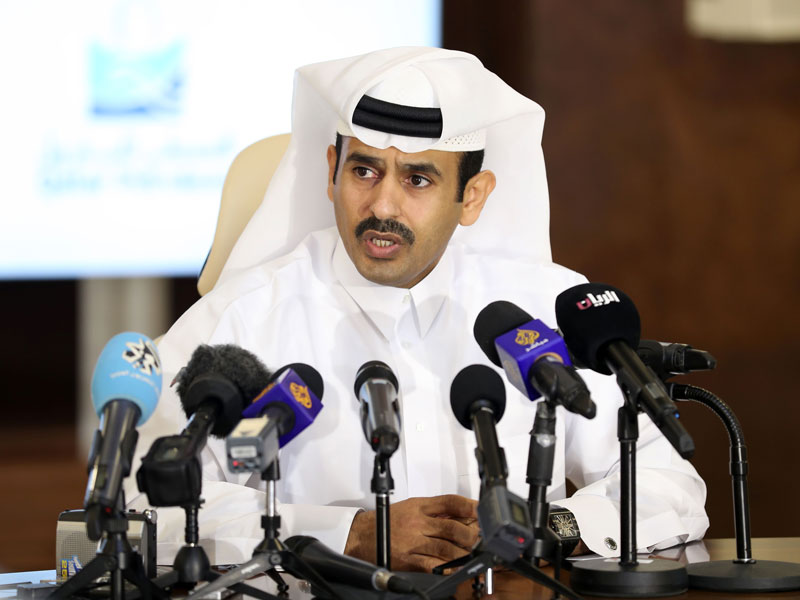Qatar to pull out of OPEC amid rising tension with Saudi Arabia
The Gulf nation will be the first to permanently pull out of the oil production cartel since its foundation in 1960

Minister of State for Energy Affairs Saad al-Kaabi announced on December 3 that Qatar will exit the OPEC after 57 years of membership of the oil organisation
Qatar will exit the OPEC after nearly 60 years of membership to focus on natural gas production, the country’s minister of state for energy affairs, Saad al-Kaabi, announced on December 3.
Al-Kaabi told reporters at a news conference that the Gulf nation would cease membership of the oil cartel in January 2019, but would still attend a group meeting scheduled to take place in Vienna later this week. It has also pledged to abide by its current commitments until its departure from the group.
In June 2017, Saudi Arabia, along with the UAE, Bahrain and Egypt, imposed a political and economic boycott on Qatar
The country is currently locked in a diplomatic dispute with Saudi Arabia, the de facto leader of the OPEC, amid claims that the Qatari Government is funding terrorism-related activities.
In June 2017, Saudi Arabia, along with the UAE, Bahrain and Egypt, imposed a political and economic boycott on Qatar, which includes a trade and travel embargo for all citizens of those four countries. The Qatari Government has denied the claims.
Al-Kaabi said the decision to leave the group was not politically motivated: “I assure you this purely was a decision on what’s right for Qatar long term.” Rather, he claimed, Qatar is seeking to expand its natural gas production, which is currently limited by the country’s OPEC membership.
“For me to put efforts and resources and time in an organisation that we are a very small player in and I don’t have a say in what happens… practically it does not work, so for us it’s better to focus on our big growth potential,” he said at the news conference.
Qatar’s oil output of 600,000 barrels per day (bpd) is one of the smallest in the OPEC, and is dwarfed by Saudi Arabia’s 11 million bpd production rate. As a result, the decision to leave the group after 57 years of membership is predominantly a symbolic one and will not have a significant impact on the OPEC’s global influence.
The small Gulf nation is a powerful force in the liquid natural gas sector, though, producing more than 77 million tonnes annually. After departing the OPEC, Qatar will seek to ramp up production to 110 million tonnes annually by 2024, said al-Kaabi.
At this week’s meeting, which begins on December 6, OPEC nations are expected to agree on a supply cut in a bid to prevent oil prices from sliding any further. Prices for Brent Crude, the industry benchmark, peaked in October at $82 per barrel but have since fallen over 30 percent, and this morning was trading at $62 per barrel.
Qatar is the first nation to leave the OPEC for good since its inception in 1960. The decision could pave the way for other countries to do the same, setting the scene for the disintegration of one of the most powerful global alliances.
Despite al-Kaabi’s assertion that the decision was not politically motivated, leaving the OPEC gives Qatar the freedom to pursue new international partnerships and escape from the blockade imposed by Saudi Arabia.













